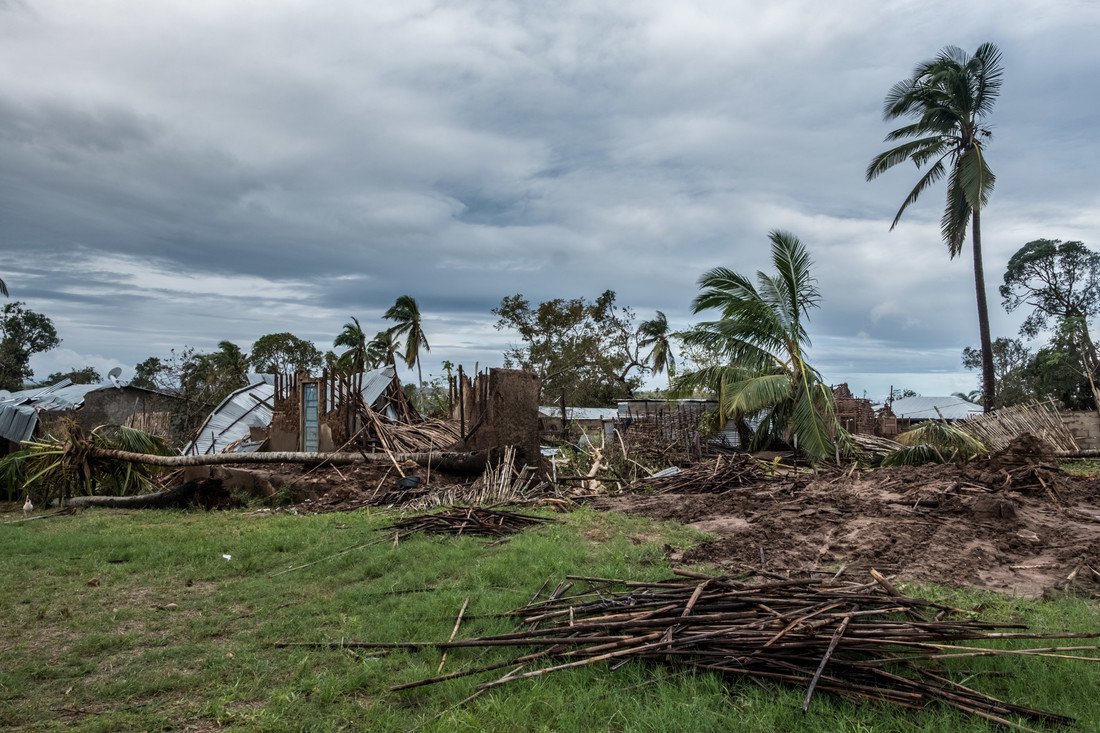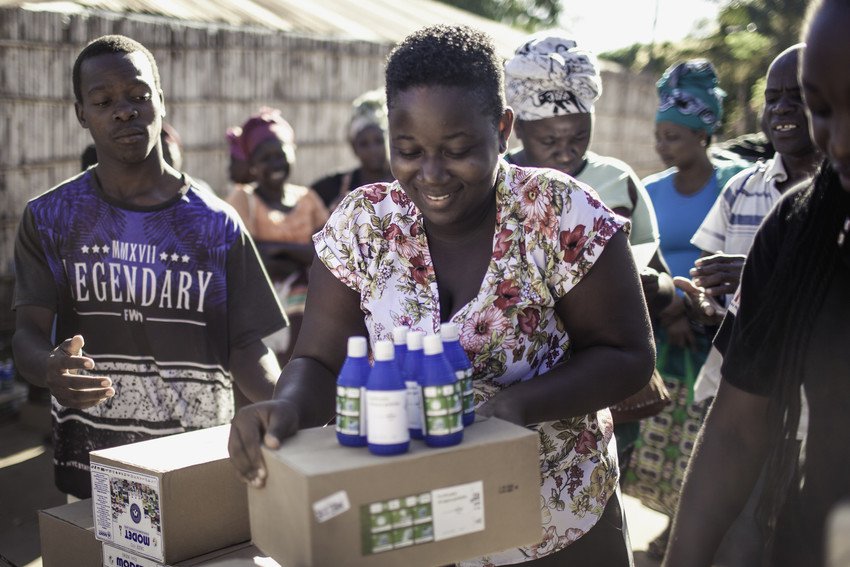One month after Cyclone Kenneth devastated towns in northern Mozambique, many are still in need of basics, such as clean water and sanitation.
On April 25, just six weeks after Cyclone Idai hit, Cyclone Kenneth touched down in northern Mozambique. With winds up to 130 m/h, it is the strongest cyclone to hit the country. It’s the first time on record in Mozambique that two cyclones of such strength have struck in the same season.
It is not typical for the northern part of the country to see such powerful cyclones, and some families were unprepared or didn’t understand the warnings about Cyclone Kenneth’s impact. Heavy rains continued to fall, causing severe flooding.
More than 700,000 people live in Cyclone Kenneth’s path, and according to the Mozambiquan government, at least 370,000 people have been directly affected by the storm. Aerial assessments show that up to 80 percent of homes in the districts of Quissanga, Macomia, and Ibo have been damaged or destroyed by strong winds and flash floods.

In Cabo Delgado, one of Mozambique’s poorest provinces, at least 38 deaths have been confirmed, nearly 200 classrooms are devastated—affecting more than 20,000 students—and 74,131 acres of crops are affected. Despite the destruction, people are staying strong.
“Since Cyclone Kenneth tore through northern Mozambique one month ago, communities here have shown unbelievable strength, supporting their families and neighbors,” reports Rotafina Donco, country director for Oxfam in Mozambique, who just returned from Pemba. “We have worked together with local organizations, the government, and community volunteers to save lives after flooding and winds destroyed homes, crops, and other resources. Now, even as many are eager to rebuild and move forward, many still need the basics to stay healthy and safe.”
What is Oxfam doing to help communities affected by Cyclone Kenneth?
The focus of our response is on hard-to-access areas in the north. Oxfam, working through local partners and as part of COSACA, a consortium with Save the Children and Care, has been setting up health committees in different neighborhoods on Pemba Island, the capital of Cabo Delgado, to distribute Certeza water purification solution to help families have safer drinking water in the wake of a cholera outbreak. As of May 16, Oxfam distributed Certeza to over 70,000 people across three neighborhoods in Pemba. Families have also received items such as hygiene kits, buckets, mosquito nets, and tarps.

Fatima Mowade is a community health volunteer with Oxfam, working with households to educate people on treating their water to prevent cholera, diarrhea, and other illnesses.
"I’m doing this work because I want to help my people protect themselves from being sick,” says Mowade. “I believe that if people here were more careful with their cleanliness, then they would not fall sick. Keeping your house—kitchen, bathrooms and garden—clean is important to protecting yourself from these [cholera and diarrhea] diseases. It’s a right for every citizen."

And the message is getting across. Minate Amede is a welder, father, and husband to a pregnant wife. He is practicing the lessons he has heard on the radio and on TV about the importance of clean water and sanitation.
"In our home, I’m usually responsible for treating the water in the storage tanks, by pouring in a few drops of chlorine in the storage tanks,” he says. “It’s important that I treat the water because I always hear on the radio and watch on the news that it will keep my family from getting sick. My wife is also pregnant, so I want to make sure that she is also protected from these diseases."
